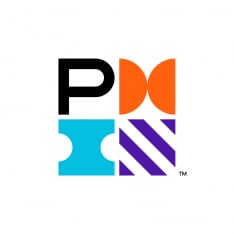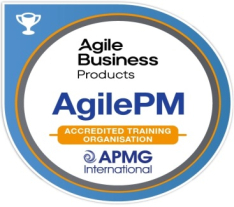We may not have the course you’re looking for. If you enquire or give us a call on 01344203999 and speak to our training experts, we may still be able to help with your training requirements.

close
Press esc to close

close


Press esc to close

close
Fill out your contact details below and our training experts will be in touch.



Back to Course Information
Lesson 1: Business Environment
Topic A: Foundation
Topic B: Strategic Alignment
Topic C: Project Benefits and Value
Topic D: Organisational Culture and Change Management
Topic E: Project Governance
Topic F: Project Compliance
Lesson 2: Start Project
Topic A: Identify and Engage Stakeholders
Topic B: Form the Team
Topic C: Build Shared Understanding
Topic D: Determine Project Approach
Lesson 3: Plan the Project
Topic A: Planning Projects
Topic B: Scope
Topic C: Schedule
Topic D: Resources
Topic E: Budget
Topic F: Risks
Topic G: Quality
Topic H: Integrate Plans
Lesson 4: Lead the Project Team
Topic A: Craft Your Leadership Skills
Topic B: Create a Collaborative Project Team Environment
Topic C: Empower the Team
Topic D: Support Team Member Performance
Topic E: Communicate and Collaborate with Stakeholders
Topic F: Training, Coaching and Mentoring
Topic G: Manage Conflict
Lesson 5: Support Project Team Performance
Topic A: Implement Ongoing Improvements
Topic B: Support Performance
Topic C: Evaluate Project Progress
Topic D: Manage Issues and Impediments
Topic E: Manage Changes
Lesson 6: Close the Project Phase
Topic A: Project/Phase Closure
Topic B: Benefits Realisation
Topic C: Knowledge Transfer
PMP is a registered trademark of the Project Management Institute, Inc.
PMI is a registered trademark of the Project Management Institute, Inc.
PMBOK is a registered trademark of the Project Management Institute, Inc.
The PMI Registered Education Provider logo is a registered mark of the Project Management Institute, Inc.


This PMP® Certification Training Course is suitable for anyone who is interested in project management roles or for those who want to enhance their knowledge and skills in managing projects. However, this training will be more beneficial for:
To attend this PMP® Certification Training Course, make sure you meet one of the following sets of PMP Certification requirements:
or
PMP®, which stands for Project Management Professional, is a globally recognised certification that validates an individual's knowledge and skills in project management. PMP® Certification is highly valued in the field of project management as it establishes a framework for professionals to plan, execute, monitor, control, and close projects. Studying this training provides knowledge and prepares individuals to excel in the PMP® Certification exam and project management careers. This training helps organisations improve project success rates, increase productivity, and enhance project delivery capabilities. Pursuing this training equips you with the necessary skills, methodologies, and confidence to pursue the PMP certification and excel in project management roles.
The Knowledge Academy’s 5-day PMP® Certification Training course provides individuals with a solid foundation in project management, practical tools, and strategies to succeed in their professional project management endeavours. During this training, delegates will learn about strategic alignment and the role of project management in delivering business value. They will also learn project governance and compliance to ensure successful project execution within organisational frameworks. This training will be led by our highly skilled and knowledgeable trainer, who has years of experience in teaching PMI® courses and will help delegates get a complete understanding of the project management methodology.
Course Objectives
After attending this course, delegates will be able to apply project management principles and methodologies to plan, execute, and control projects effectively. They will also be able to develop comprehensive project management plans, including scope, schedule, resource, risk, and quality management.
PMP is a registered trademark of the Project Management Institute, Inc.
PMI is a registered trademark of the Project Management Institute, Inc.
PMBOK is a registered trademark of the Project Management Institute, Inc.
The PMI Registered Education Provider logo is a registered mark of the Project Management Institute, Inc.




Why choose us
Our easy to use Virtual platform allows you to sit the course from home with a live instructor. You will follow the same schedule as the classroom course, and will be able to interact with the trainer and other delegates.





Our fully interactive online training platform is compatible across all devices and can be accessed from anywhere, at any time. All our online courses come with a standard 90 days access that can be extended upon request. Our expert trainers are constantly on hand to help you with any questions which may arise.





This is our most popular style of learning. We run courses in 1200 locations, across 200 countries in one of our hand-picked training venues, providing the all important ‘human touch’ which may be missed in other learning styles.

All our trainers are highly qualified, have 10+ years of real-world experience and will provide you with an engaging learning experience.

We only use the highest standard of learning facilities to make sure your experience is as comfortable and distraction-free as possible

We limit our class sizes to promote better discussion and ensuring everyone has a personalized experience

Get more bang for your buck! If you find your chosen course cheaper elsewhere, we’ll match it!
This is the same great training as our classroom learning but carried out at your own business premises. This is the perfect option for larger scale training requirements and means less time away from the office.

Our courses can be adapted to meet your individual project or business requirements regardless of scope.

Cut unnecessary costs and focus your entire budget on what really matters, the training.

This gives your team a great opportunity to come together, bond, and discuss, which you may not get in a standard classroom setting.

Keep track of your employees’ progression and performance in your own workspace.
100%
Miss Kerry is a really good teacher, she explained well.
It was a wonderful session… sure I will be recommending this session to colleagues who are guidance in PMP

You won't find better value in the marketplace. If you do find a lower price, we will beat it.

The Knowledge Academy is a Authorized Training Partner (A.T.P) and is approved to provide PDUs by the Project Management Institute (PMI)®.

Flexible delivery methods are available depending on your learning style.

Resources are included for a comprehensive learning experience.




"Really good course and well organised. Trainer was great with a sense of humour - his experience allowed a free flowing course, structured to help you gain as much information & relevant experience whilst helping prepare you for the exam"
Joshua Davies, Thames Water



 History of the PMP® Credential
History of the PMP® Credential Who is the PMP® Credential for?
Who is the PMP® Credential for? PMP® Case Studies
PMP® Case Studies PMP® Eligibility Requirements
PMP® Eligibility Requirements Benefits of the PMP® Credential for Individuals
Benefits of the PMP® Credential for Individuals Benefits of the PMP® Credential for Businesses
Benefits of the PMP® Credential for Businesses PMP® Framework (Methodologies)
PMP® Framework (Methodologies) Project Management Professional (PMP) Certifications
Project Management Professional (PMP) Certifications The PMP® Exams
The PMP® Exams The PMP® Exam Validation
The PMP® Exam Validation The PMP® Exams and Pass Rates
The PMP® Exams and Pass Rates How long is the PMP® Certification valid for?
How long is the PMP® Certification valid for? How to get 60 PDUs of the PMP® credential?
How to get 60 PDUs of the PMP® credential? How to book the PMP® Certification
How to book the PMP® Certification How to pass the PMP® exam
How to pass the PMP® exam What if I fail the Exam?
What if I fail the Exam? How to get results from the PMP® Credential
How to get results from the PMP® Credential Careers for the PMP® Credential
Careers for the PMP® Credential Which sectors use the PMP® Credential?
Which sectors use the PMP® Credential? Job Roles form the PMP® Credential
Job Roles form the PMP® Credential How to add the PMP® Credential to your CV
How to add the PMP® Credential to your CV How to add the PMP® Credential to your LinkedIn
How to add the PMP® Credential to your LinkedIn
 Back to course information
Back to course information
PMP® Certification Training Course£3395
Lean Six Sigma Green Belt£2495
Scrum Master Certification£1695


Total without package: £11075
Package price: £8295 (Save £2780)
PRINCE2® Foundation & Practitioner Training Course£2295
Agile Project Management Foundation & Practitioner (AgilePM®)£2495


Total without package: £9880
Package price: £5895 (Save £3985)


Total without package: £5890
Package price: £4395 (Save £1495)
 If you miss out, enquire to get yourself on the waiting list for the next day!
If you miss out, enquire to get yourself on the waiting list for the next day!